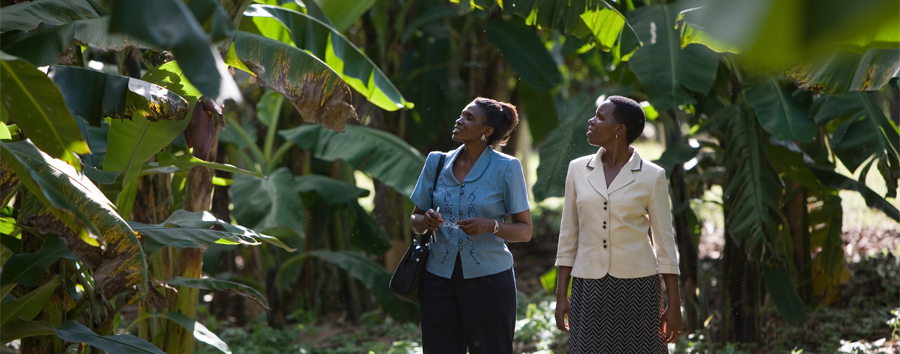
Agriculture currently accounts for 32% of Africa’s gross domestic product (GDP), making it Africa’s second-largest industrial sector. In countries such as Burundi, Burkina Faso, and Madagascar, more than 80% of the labor force works in agriculture. A Mckinsey Global study estimates that African agriculture will grow by 6% annually until 2030. Evidently, agriculture has the potential to transform Africa; but how can Africa reap all possible benefits from that transformation?
In January of this year, Dr. Wanjiru Kamau-Rutenberg, director of African Women in Agricultural Research and Development (AWARD) brought this discussion to an international stage, engaging several audiences in the US.
At the George Washington University during a seminar organized by its Elliot School of International Affairs, Dr. Kamau-Rutenberg cautioned that while agricultural development is crucial to African prosperity, agricultural advancement holds the potential to lessen, maintain or even widen gender inequality in Africa. Thus, decision makers must make a conscious effort to be inclusive and promote gender equality, such as using agricultural innovation and technologies to combat inequality in the African agricultural sector.
AWARD is making this conscious effort in its approaches that focus on gender-responsive agricultural research and innovation. Gender responsiveness holds the transformative potential to enhance agricultural research for Africa’s sustained and inclusive economic growth. In Africa as a whole, 68% of economically active women are involved in agriculture. Despite this, the rural wage gap between men and women in Africa is estimated between 15-60%, depending on the country. For example, only 27% of scientists, professors, and lecturers in Africa are women, while at management level, women make up only 17%. Indeed, agriculture can drive Africa forward, alleviating hunger and poverty across the continent. As we start the engine, though, it is important to ask ourselves, “How do we ensure that everyone is in the car?”
At the spring 2018 Women and Gender Discussion Series of Virginia Polytechnic Institute and State University, Dr. Kamau-Rutenberg emphasized that for the agricultural sector to be truly gender-responsive, it must embrace inclusivity at all levels from agricultural research to farms and marketplaces.
The possibilities that occur at the intersection of gender responsiveness and agricultural research and production are immense. Evidence indicates that gender-responsive research is more efficient; it results in more inclusive, better targeted, more relevant innovations with higher rates of adoption.
Indeed, gender responsiveness will ensure we reap all the benefits of agricultural transformation.
The seminar at George Washington University’s was co-sponsored by its International Development Studies (IDS). It aims at preparing students for a career in sustainable development and the Gender Equality Initiative in International Affairs (GEIA) which focuses on integrating gender equality into development initiatives.
The spring 2018 Women and Gender Discussion Series was facilitated by Virginia Tech’s Women and Gender in International Development of the Center for International Research, Education, and Development (CIRED).
